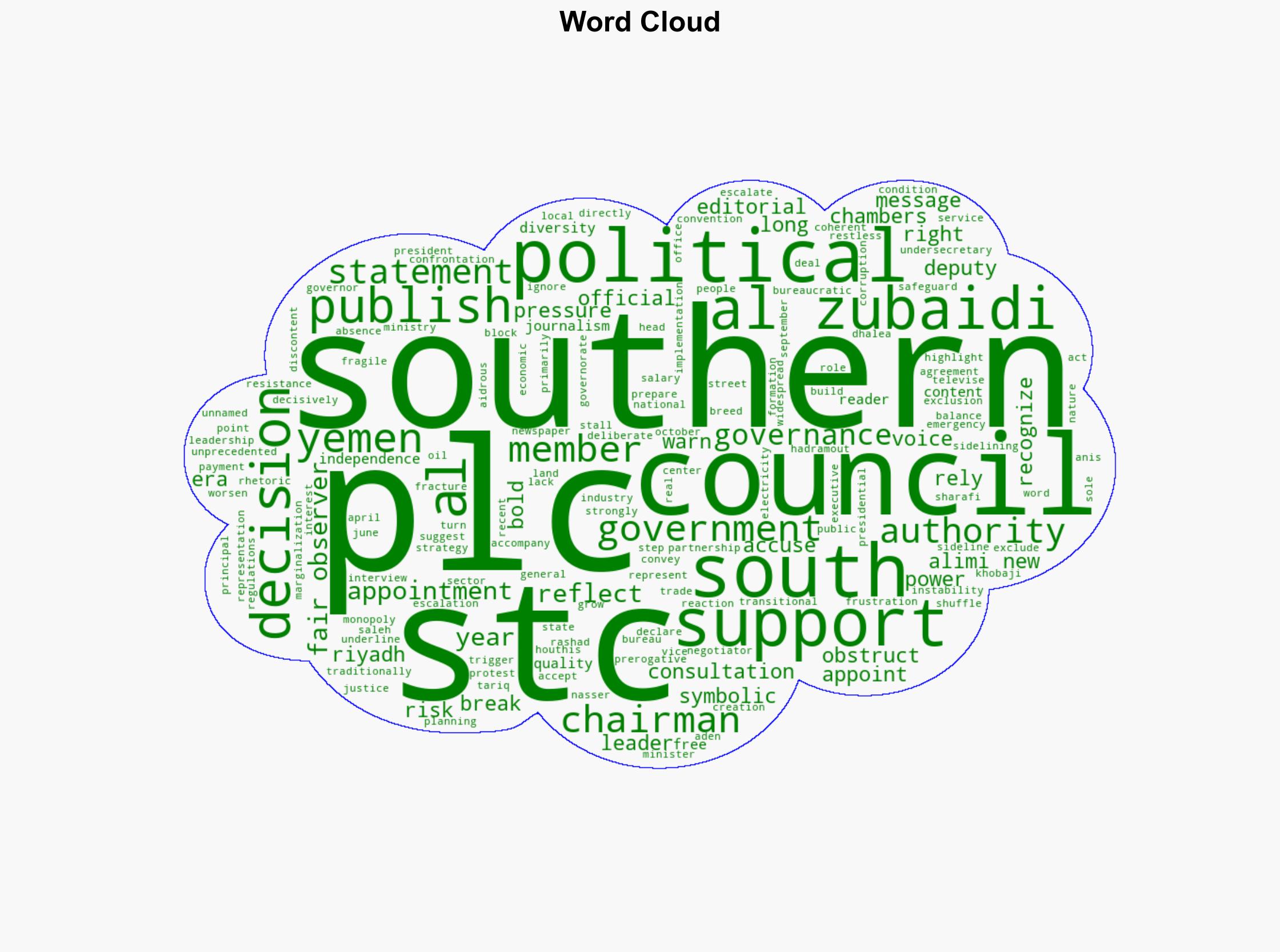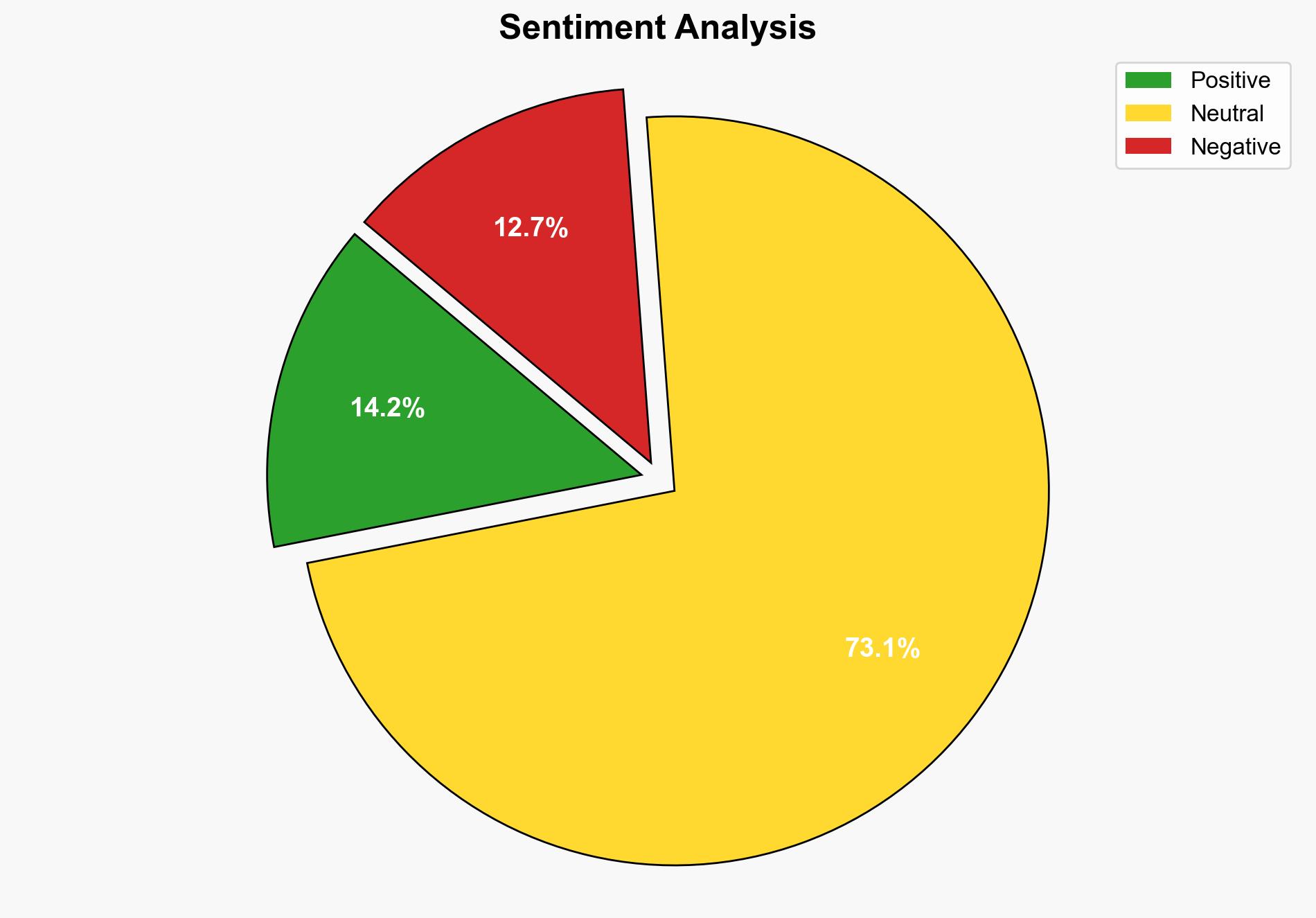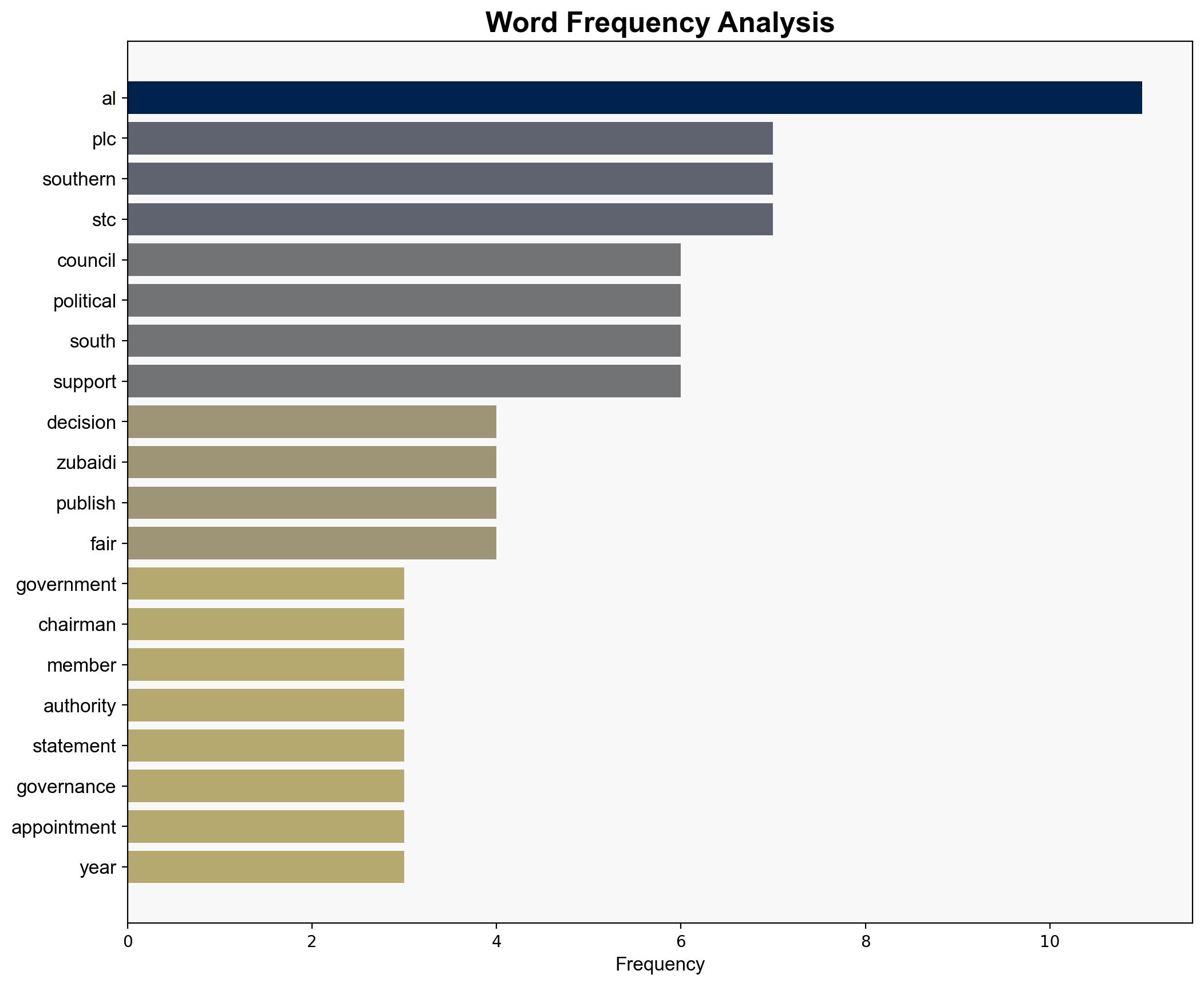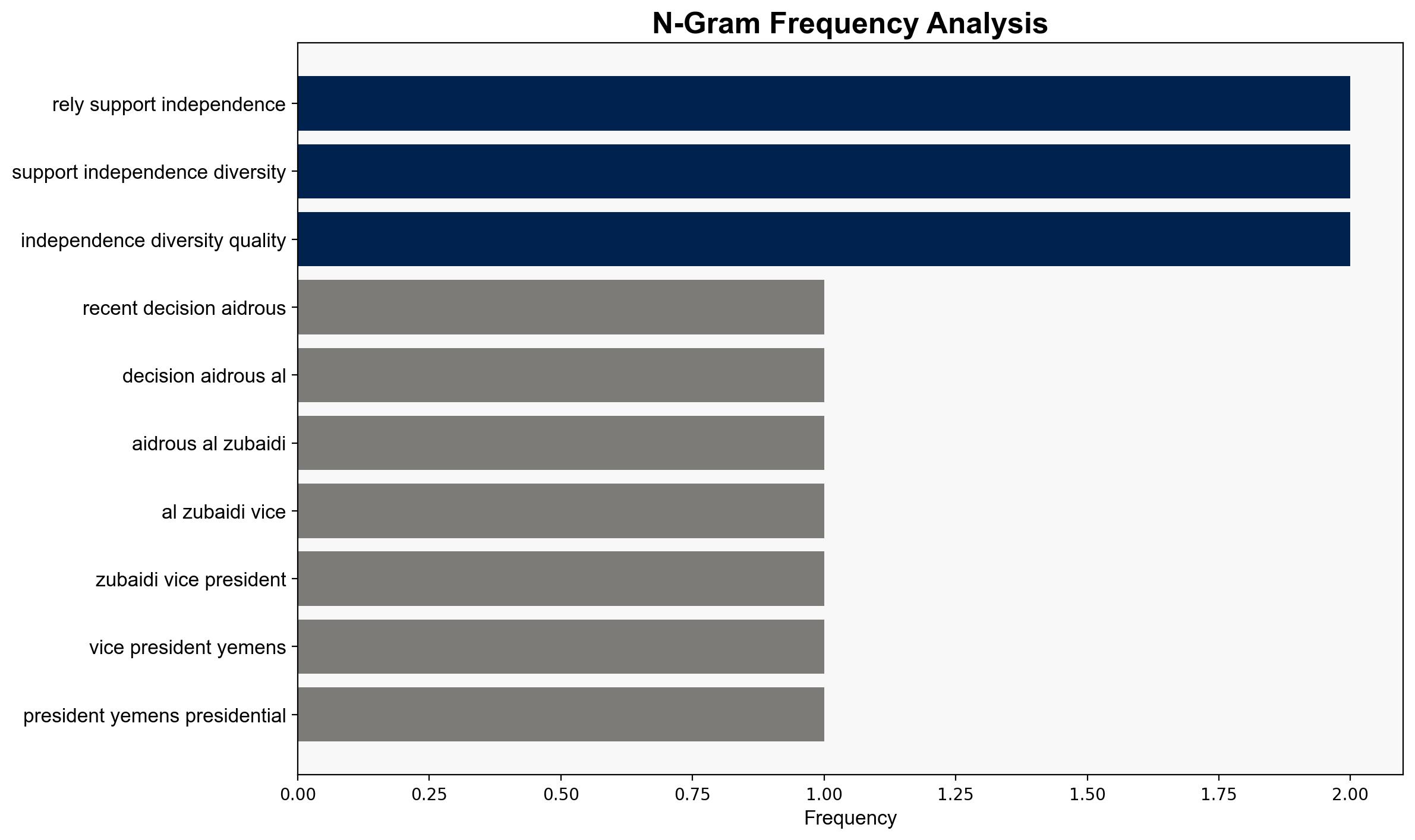Al-Zubaidis Bold Appointments Signal a Shift in Yemens Power Balance – Fair Observer
Published on: 2025-10-14
Intelligence Report: Al-Zubaidis Bold Appointments Signal a Shift in Yemens Power Balance – Fair Observer
1. BLUF (Bottom Line Up Front)
The strategic judgment suggests that Aidrous Al-Zubaidi’s recent appointments indicate a significant shift in Yemen’s political landscape, potentially leading to increased fragmentation within the Presidential Leadership Council (PLC). The most supported hypothesis is that Al-Zubaidi’s actions are a deliberate move to assert the Southern Transitional Council’s (STC) influence and challenge the current power dynamics. Confidence level: Moderate. Recommended action: Monitor developments closely and engage in diplomatic efforts to mediate tensions within the PLC.
2. Competing Hypotheses
1. **Hypothesis 1**: Al-Zubaidi’s appointments are a strategic maneuver to increase the STC’s influence within the PLC, signaling a shift towards more equitable power-sharing and addressing long-standing grievances of the South.
2. **Hypothesis 2**: The appointments are primarily a political statement aimed at consolidating Al-Zubaidi’s power base within the South, potentially exacerbating divisions within the PLC and leading to further instability.
Using ACH 2.0, Hypothesis 1 is better supported due to the explicit statements from the STC about seeking genuine partnership and the historical context of Southern grievances. However, Hypothesis 2 cannot be dismissed given the potential for increased fragmentation and the STC’s history of unilateral actions.
3. Key Assumptions and Red Flags
– **Assumptions**: It is assumed that Al-Zubaidi’s appointments will lead to a more balanced power distribution within the PLC. There is also an assumption that the STC’s actions are primarily motivated by a desire for equitable governance.
– **Red Flags**: The lack of consultation with other PLC members and the potential for unilateral decision-making by the STC could indicate underlying intentions to consolidate power rather than share it.
– **Blind Spots**: The response of other PLC members and external actors, such as regional powers, remains uncertain and could significantly influence outcomes.
4. Implications and Strategic Risks
The appointments could lead to increased tensions within the PLC, risking paralysis and further fragmentation. Economically, instability could exacerbate existing challenges, such as corruption and inadequate services, fueling public discontent. Geopolitically, regional actors may exploit divisions to further their interests, complicating peace efforts. The potential for escalation into broader conflict remains a significant risk.
5. Recommendations and Outlook
- Engage in diplomatic dialogue with all PLC members to encourage collaborative governance and address grievances.
- Monitor regional actors’ involvement and prepare contingency plans for potential escalation scenarios.
- Scenario-based projections:
- Best Case: Successful mediation leads to a more balanced PLC and improved governance.
- Worst Case: Increased fragmentation leads to conflict and further destabilization.
- Most Likely: Continued tensions with periodic escalations, requiring ongoing diplomatic intervention.
6. Key Individuals and Entities
– Aidrous Al-Zubaidi
– Rashad Al-Alimi
– Anis Al-Sharafi
– Nasser Al-Khobaji
– Tariq Saleh
7. Thematic Tags
national security threats, regional focus, political instability, power dynamics





